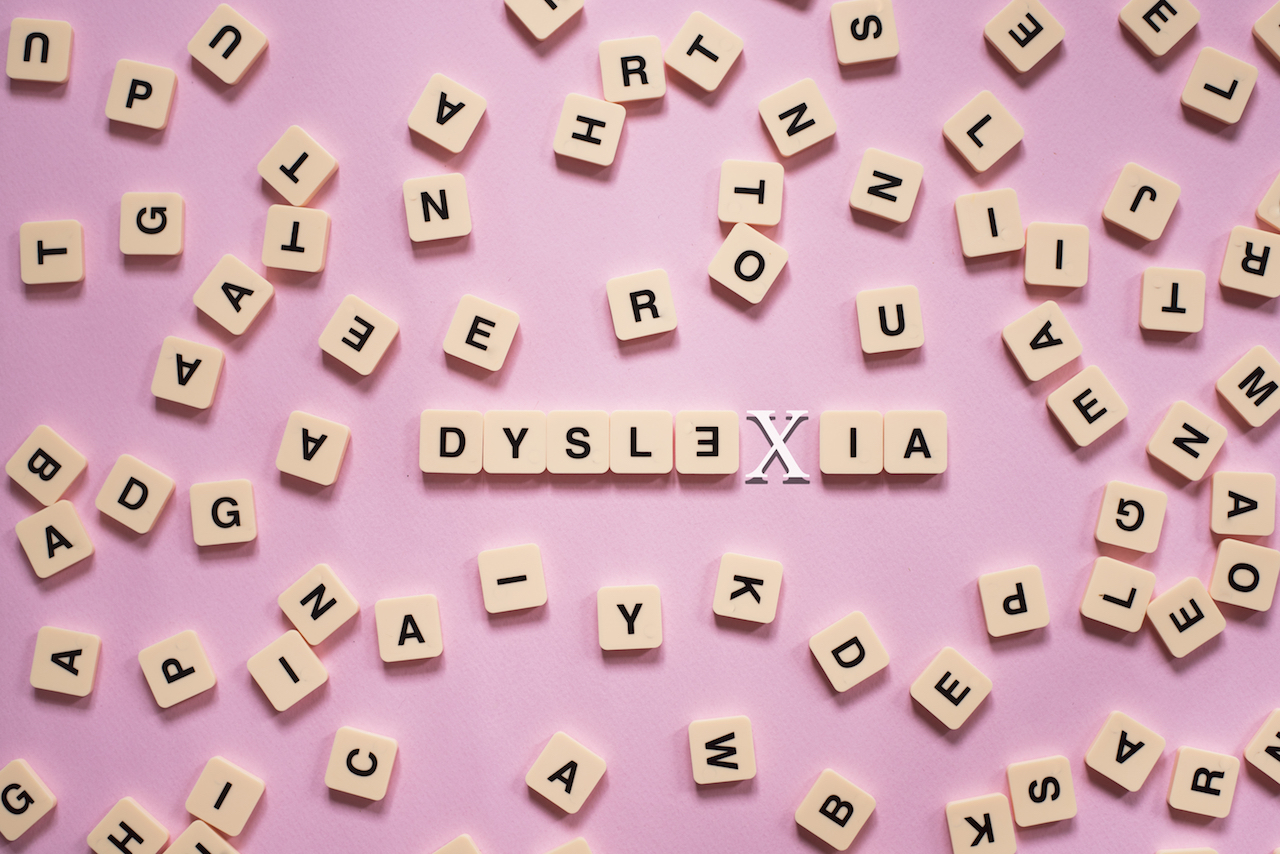Dyslexia is a lifelong neurological condition that makes it difficult for you to read. It’s a common learning issue which usually develops in children. Those who are diagnosed usually struggle with answering questions about anything they’ve read. Dyslexia can create difficulty with other skills too, like spelling, writing, mathematics and reading comprehension.
The condition can be difficult to diagnose until a child goes to school and even then, a teacher may not be able to accurately pick up the signs. This is because they may blame early signs on children not applying themselves or not paying attention. Many people who aren’t familiar with the condition often believe that dyslexia is only a spelling problem. Due to this, older children who are diagnosed later may struggle socially when they reach higher grades as it will become harder for them to communicate and cope with their studies.
Common symptoms of dyslexia
Struggling to read
Children with dyslexia have normal intelligence but they often struggle to learn as they find reading difficult.
Reaching milestones later
Kids with dyslexia may take longer than others to learn to crawl, walk, talk and ride a bicycle.
Coordination
It may even be hard for children with dyslexia to do activities like catching a ball, as they may struggle with hand-eye-coordination and clumsiness.
Struggling with speech development
A dyslexic child may take longer to learn to pronounce words and may mispronounce words. They may take longer to learn how to speak. They find rhyming and separating different sounds difficult.
Low concentration span
Children with dyslexia commonly find it hard to concentrate. This usually happens after they’ve been struggling with symptoms which leaves them mentally exhausted.
Spelling
Although most children take some time to learn new words, eventually they retain them. On the other hand, dyslexic children may learn to spell new words then completely forget them within a day.
Reversal
Dyslexia can cause a child to confuse left from right and reverse numbers and letters unconsciously.
How is dyslexia diagnosed?
A doctor will ask questions about your child’s development, educational issues, medical history, and home life. To diagnose dyslexia, a child will be given questionnaires, tests (vision, hearing, academic and neurological) and psychological assessments.
Adults who suspect they may have dyslexia should ask themselves the following questions. If you check more than seven of these you should talk to your doctor.
- Do you read slowly?
- Did you struggle to learn how to read when you were at school?
- Do you often have to read something two or three times before it makes sense?
- Are you comfortable reading out loud?
- Do you omit, switch, or add letters when reading or writing?
- Do you find spelling mistakes in your writing even when using Spell Check?
- Do you find it difficult to pronounce uncommon multi-syllable words when reading?
- Do you choose to read magazines or short articles rather than longer books and novels?
- When you were in school, did you find it difficult to learn a foreign language?
- Do you avoid work projects or courses that require extensive reading?
Treatment
Early diagnosis and support can lead to long-term improvement in dyslexic people.
Treatment may include:
- Psychological testing. This helps the teacher develop an appropriate programme for the child. Tests may involve using senses like touch, vision and hearing.
- Guidance and support therapy. Counselling aims to minimise any negative effects (like a low self-esteem).
- Ongoing evaluation. Adults with dyslexia may benefit from an evaluation to continue developing coping strategies and identify areas where more support is necessary.
Give yourself a hand
Along with treatment, there are ways to help ease some of your struggles as a dyslexic adult.
Make extra time
or tasks that you struggle with or take longer to complete, put in extra time. Come in earlier, start your work ahead of schedule, or get easy tasks out of the way before tackling the difficult ones.
Use visuals
You may find it easier to process information if you use visual tools like charts, diagrams and text instructions. At work, ask your boss if you can present audio reports or audio summaries instead of text, and use colour paper when making visual charts.
Stay organised
Certain tasks can be difficult and even more so when you have a learning disability, so it’s important to plan. To avoid feeling overwhelmed, manage your tasks. For example, if you have a difficult project to do in the morning, take your full lunch break or do easier tasks in the afternoon to allow your brain to recover.
Create awareness
Remember, dyslexia has nothing to do with how intelligent you are, so don’t be ashamed to tell people about your condition. Let your boss and colleagues know about your condition so that they can understand about certain difficulties that you may have.
References:
- https://www.dyslexia.com/about-dyslexia/signs-of-dyslexia/common-characteristics-of-adult-dyslexia/comment-page-4/
- https://www.mayoclinic.org/diseases-conditions/dyslexia/diagnosis-treatment/drc-20353557
- https://www.nhs.uk/conditions/dyslexia/living-with/
- https://www.webmd.com/children/understanding-dyslexia-symptoms#1
- http://dyslexiahelp.umich.edu/dyslexics/learn-about-dyslexia/what-is-dyslexia/debunking-common-myths-about-dyslexia
- https://dyslexiaida.org/dyslexia-test/
- http://www.dyslexia.uk.net/adults-with-dyslexia/
- https://www.dyslexia.com/about-dyslexia/signs-of-dyslexia/common-characteristics-of-adult-dyslexia/comment-page-9/
- https://www.nhs.uk/conditions/dyslexia/symptoms/#getting-help

